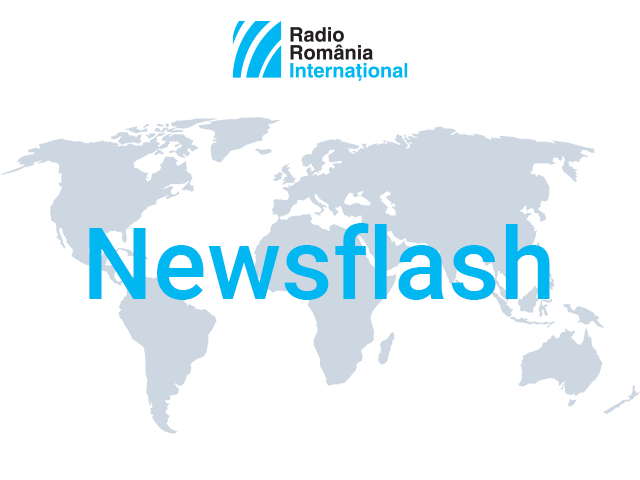June 14, 2023 UPDATE
A roundup of domestic and international news

Newsroom, 14.06.2023, 20:00
GOVERNMENT – All designated
members of the Ciolacu Cabinet have been greenlit by Parliament’s special
committees. The PSD-PNL coalition, in addition to representatives of national
minorities other than Hungarian, said they have the numbers to vote in the new
government, after UDMR withdrew from the ruling coalition. Finance Minister
designate Marcel Boloș said the introduction of new taxes is out of the
question, while the Interior Minister designate Cătălin Predoiu, pointed out
his number one priority is Romania’s Schengen Accession. In committee hearings,
Labor Minister designate Marius Budăi gave assurances that the retirement age
will be increased to 65 years for all categories of workers with the exception
of magistrates, who will retire at 60. In turn, Defense Minister designate
Angel Tîlvăr referred to the priorities of the Defense Ministry, arguing that
the Black Sea is an area of increased importance where Romania should become a pillar
of regional security. Marcel Ciolacu and his cabinet will appear before
Parliament’s plenary session on Thursday to seek the vote of investiture. From
the opposition, USR and AUR said they would vote against, in addition to a
number of PNL and PSD MPs who expressed their disapproval of the new Cabinet.
UDMR MPs said they would attend the session but would not cast their votes.
COMPANIES – The number of
companies with foreign capital newly established in Romania increased in the
first four months of the year by 4.6%, compared to the similar period in 2022,
according to data centralized by the National Trade Registry Office (ONRC). The
figure represents some 2,300 new companies that had a total subscribed capital
of about 8.5 million dollars. According to the National Trade Registry, at the
end of April 2023, in Romania there were over 246 thousand companies with
foreign participation in the share capital, with a subscribed capital value of
about 68 billion dollars. The largest number of companies with foreign
participation is with investors from Italy, but the highest value of the social
capital belongs to Dutch companies.
POVERTY -
Nearly 35% of Romanians were last year exposed to poverty and social exclusion,
accounting for the largest share among EU member states, the Eurostat reports.
According to the report, the average at EU level stood at 22% in 2022, the same
as in 2021. Romania is followed by Bulgaria, Greece and Spain. Countries with
the lowest poverty risk levels are the Czech Republic, Slovenia and Poland. At
the same time, data shows that the risk of poverty and social exclusion is
higher for women compared to men in the EU.
AI – MEPs on
Wednesday adopted Parliament’s negotiation position on the AI Act and have
given the go ahead for talks for ensuring safe and transparent artificial
intelligence. According to the European Parliament, the regulations are
designed to make sure that AI systems used in the EU are safe, transparent,
traceable, non-discriminatory and environmentally friendly. The new rules establish obligations for providers and
users depending on the level of risk from artificial intelligence. Therefore,
systems with an unacceptable risk considered a threat to people, such as those
classifying people based on behavior, socio-economic status or personal
characteristics, gender, race, ethnicity, citizenship, religion or political
orientation, are expected to be banned. MEPs will ban systems that recognize
emotions in workplaces or education institutions, in law enforcement or in the
field of border security. Last but not least, MEPs want to consolidate
citizens’ right to file complaints regarding AI systems with a high degree of
risk and have updated the role of the AI Office of the EU, which will be tasked
with monitoring the application of the regulation framework.
EUROPOL – The threat of terrorist
attacks and disinformation campaigns remains high in Europe, the Europol claims
in its annual report published on Wednesday in the Hague. Europol also states
that the biggest threat is represented by jihadist terrorist cells, although
left-wing or right-wing extremists are also likely to increase their terrorist
activity. 28 terrorist attacks took place in 2022 in the EU, killing four
people. The head of Europol, Catherine De Bolle, said that fighting terrorism
remains a priority, arguing that right now lone wolf attackers remain the
biggest threat. The war in Ukraine also affects public security, first and
foremost due to disinformation campaigns run by pro-Russian groups, which could
polarize society and fuel terrorist and extremist violence, the Europol also
states. (MI & VP)




























